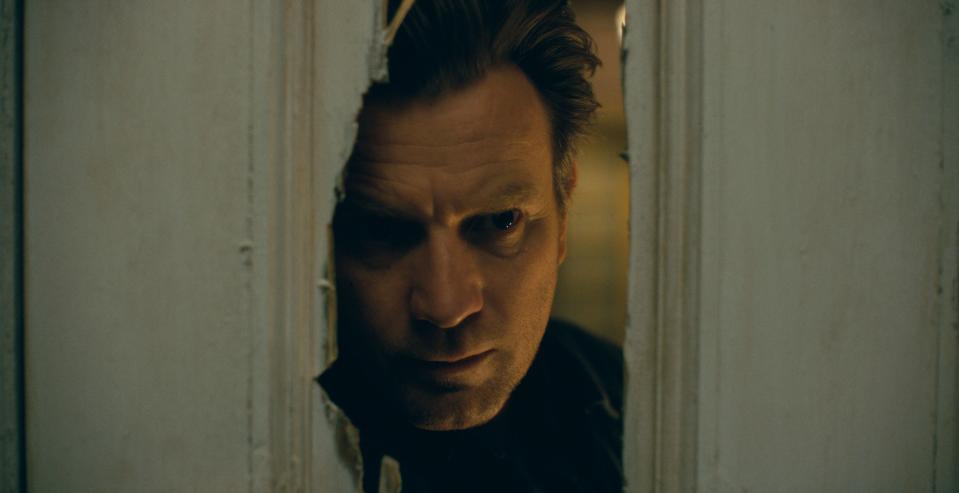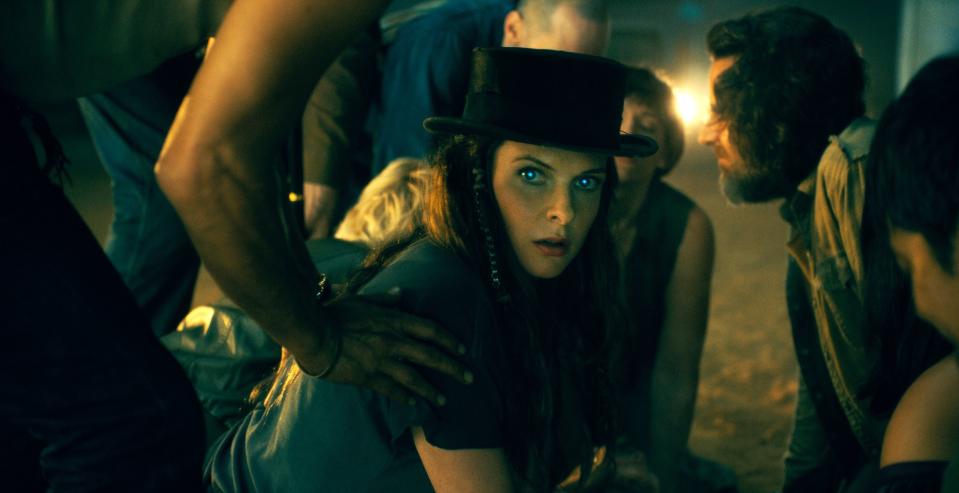Doctor Sleep Director Mike Flanagan Knows He Had an Impossible Job
Mike Flanagan, As I said in my review of the well-crafted if muddled Doctor Sleep film, does not have an enviable job right now. The increasingly popular horror auteur had a hell of a job in not only adapting one of Stephen King's more out-there stories but also blending it with Kubrick's very different vision of The Shining, to which Doctor Sleep is a direct sequel.
If anyone would be up for such a difficult task, though, it's Flanagan, who has made a career out of delivering horror movies that have no business being as good as they are. His first film, the Kickstart-funded Absentia, is a stunning and confident debut with an absolutely bonkers and brutal story. From there, he made a haunted mirror scary in 2013's Oculus, directed a critically successful prequel to the poorly received Ouija just for the hell of it, and tackled his first King movie, Gerald's Game for Netflix, which is widely regarded as one of the better adaptations of the prolific horror writer's works. He also oversaw The Haunting of Hill House, Netflix's smash-hit horror show that, despite a very deliberate pace and the prioritization of characters over scares, was widely watched and widely beloved. (And, yes, it still scared the shit out of people. Ask a friend who's seen it about "the car bit" today and watch them get mad all over again.)
GQ spoke with one of the world's foremost purveyors of spooky movies about Doctor Sleep, tackling the behemoths of both a legendary author and a legendary filmmaker who didn't see eye to eye, and his love of sad, scary endings.
GQ: What does The Shining mean to you?
Mike Flanagan: I watched The Shining for the first time when I was in fifth grade. I was way too young to see it and it thoroughly traumatized me. As I grew up, I kind of began to study it as a masterpiece of cinema before I ever got around to reading the book.
At the same time, I was also developing into the Stephen King fanatic that I would become. And as part of that, I read The Shining for the first time, thinking I knew the story, and I was shocked by how much I didn't know. I love them both for very different reasons. The novel and the film Were a huge part of my life, you know, in the decades following.
And I always had this kind of ache in my heart, you know, for that gulf of difference between the Kubrick Shining and the King Shining, especially for the way King felt about it. It was this movie I loved and admired so much, and he was my hero. To hear him talk about the film that way was really tough for me to reconcile in my own head. So when Doctor Sleep was published, I ran to the store to grab my copy as soon as it hit the shelves, and I powered it down that weekend. And I've got to say, I had this very weird experience where I'm reading this quintessentially Stephen King story that I love. It's all about recovery and responsibility and so many beautiful things, but all the images in my head while I read the book were Kubrick, and that was such a weird tug of war for me. And I thought at the time if anyone ever makes this film, what a cool chance this would be to lean into that: To try to reconcile those two things. For years, I would ask my agency what was happening with Doctor Sleep, "Can I get a meeting on it?" And they would all say, "No, we don't think anyone's gonna make that movie."
And then it all it all changed.
And then it all changed.
Dan is a character close to my heart both in the book and in the movie. How do you understand what drove him in the post-Overlook years? Where are we picking up from?
We meet Dan in Doctor Sleep at his rock bottom. Like so many children who come from abusive homes and from alcoholic parents, he's gone through this traumatic childhood experience and is not surprisingly wrestling with a lot of the same demons his father wrestled with. He's dealing with his own alcohol issues. He's dealing with his own tendency toward violence, especially when he drinks. In a lot of ways, if you go back and you look at The Shining, Jack Torrance really embodies toxic masculinity. Dan, I think, embodies a vulnerable masculinity that I thought was so profound. It really is two sides of the same coin. The Shining is about addiction and specifically the anxiety Stephen King felt, that his alcoholism could've destroyed his family.
So then you look at Doctor Sleep written decades later with decades of sobriety by King, and at his own children who have grown up to be the age that he was when he was wrestling with his most ferocious demons, and now you're looking at a story about recovery, about potential. And I love the generational saga of it.
Can you tell me about casting Ewan McGregor for Dan? And second of all, how do you direct, and how does he act, a character who's so beaten down but is not necessarily a sad sack?
Oh, yeah. We had a couple of actors come in as candidates to play Dan. Every time, we would always talk a lot about The Shining, we would talk a lot about Jack Nicholson and we would talk a lot about Kubrick. Ewan came in, we talked about that for a minute when he first got in the room, but very quickly he was like, "Yeah, yeah, Kubrick's really interesting. Anyway, I want to talk about recovery." That painstaking climb up the cliff face the character has to do for the first half of the film to find his way to purpose, that's what resonated with Ewan. It was stuff that was important and relevant to his own life, and so he was clearly the right actor for that, simply because in his mind the only conversation we're having was all about in building the characters. The words that always came into my mind when I watched him work were "humility" and "earnestness," I think that's something that he just brings with him. And that's how I think you can connect to a character without feeling like it's a sad sack.
You kind of did something quite similar with the character of Luke in The Haunting of Hill House last year. There's a lot of pitfalls and responsibility in portraying addiction and recovery.
Responsibility is something that we would talk about a lot. For so many people, it's a huge part of their life. We have a responsibility to approach it as respectfully as possible and as with as much authenticity as we can so that if even one person watches what we did, and uses that to try to improve themselves in their life, we did it right.
Once again in Doctor Sleep we get a classic Mike Flanagan bummer ending. I think it's fair to say without spoilers that things get dramatically different from the book in the end. When did you realize you would have to change a lot about where the where the story goes in that final half hour?
From the beginning, we knew we were going to have to revise the ending. I knew we were talking about changes that would be... not small. The opportunity I saw there was to dig back into the original ending of The Shining, the novel. I started to pull things up that Kubrick had jettisoned from his adaptation of King that I always wished he would have kept. And so that opened up this this new way to explore the cyclical nature of these stories: what if Dan's story and Jack's story, at least on the page, what if they were to be somehow kind of a hybrid? This is a story about handing the baton to the new generation. And I think there is a certain fate for Dan, and that the mechanics of our third act could take us all the way back to the original Shining novel.
This interview has been edited and condensed.
The horror sequel tries to have its cake and rebuild its haunted hotel, too.
In the new sequel to The Shining, the actress plays the chilling, cunning, mesmerizing Rose the Hat.
Originally Appeared on GQ



